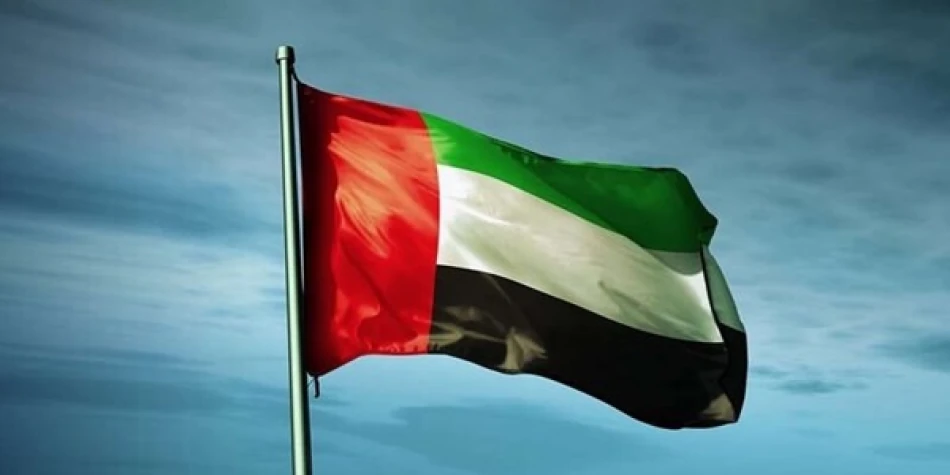
UAE Celebrates Global Humanitarian Aid Day, Reaffirms Commitment to Helping the Vulnerable
UAE Emerges as Global Humanitarian Superpower, Delivering Aid to Over One Billion People
The United Arab Emirates has cemented its position as the world's most impactful humanitarian donor, reaching over one billion beneficiaries with aid worth $100 billion by mid-2024. As the nation marks World Humanitarian Day, its strategic approach to crisis response—from Gaza to Ukraine to natural disasters—demonstrates how a relatively small nation can wield outsized influence through rapid, professional humanitarian intervention.
Gaza Operations Showcase UAE's Strategic Humanitarian Leadership
The UAE's humanitarian dominance is perhaps most visible in Gaza, where Emirati aid represents 44% of all international assistance to the territory, according to UN reports. Through "Operation Chivalrous Knight 3," the UAE has executed a comprehensive multi-modal aid strategy that includes land, sea, and air deliveries alongside infrastructure reconstruction projects.
The scale of operations is remarkable: 73 airdrops delivering nearly 4,000 tons of supplies through the subsidiary "Birds of Goodness" operation alone. This represents more than logistical efficiency—it demonstrates the UAE's ability to maintain consistent aid flows even in active conflict zones where other donors struggle with access and security concerns.
Beyond Emergency Relief: Infrastructure and Healthcare Focus
What sets UAE aid apart is its emphasis on rebuilding rather than just relief. The focus on water infrastructure, healthcare systems, and damaged facilities in Gaza reflects a long-term strategic vision that addresses root causes of humanitarian crises rather than merely treating symptoms.
Multi-Front Humanitarian Diplomacy Across Global Hotspots
The UAE's $200 million pledge to Sudan at February's Addis Ababa conference brings its total Sudanese aid to $3.5 billion over the past decade. This sustained commitment illustrates how the UAE uses humanitarian aid as a tool of soft power diplomacy, building long-term relationships that extend far beyond immediate crisis response.
Ukraine: Balancing Humanitarian Aid with Diplomatic Mediation
The UAE's approach to the Ukraine conflict demonstrates sophisticated diplomatic balancing. While providing $4.5 million for orphan care facilities and reaching 1.2 million Ukrainian beneficiaries, the UAE simultaneously facilitated 16 prisoner exchanges involving 4,349 individuals between Russia and Ukraine. This dual approach—humanitarian aid plus diplomatic mediation—positions the UAE as a neutral broker capable of maintaining relationships with all parties.
Rapid Response Capabilities Set New Global Standards
Recent natural disaster responses reveal the UAE's operational superiority in crisis management. From Chad's floods to Somalia's flooding, Myanmar's earthquakes, and Albania's wildfires, the UAE consistently delivers aid within days rather than weeks. The deployment of specialized firefighting teams and equipment to Albania in August exemplifies this rapid-response capability.
This speed advantage stems from pre-positioned assets, streamlined decision-making processes, and significant logistics infrastructure that many traditional donor countries lack. The UAE has essentially professionalized humanitarian response in ways that rival established aid organizations.
Strategic Implications for Global Aid Architecture
The UAE's humanitarian leadership challenges traditional Western-dominated aid structures. By delivering results without the bureaucratic delays typical of multilateral organizations, the UAE demonstrates an alternative model that prioritizes efficiency over process.
Economic Diplomacy Through Healthcare Infrastructure
The launch of initiatives like the "Father's Endowment" and agreements to build hospitals such as the Sheikha Fatima bint Mubarak Hospital in Chad represent a shift toward sustainable healthcare diplomacy. Rather than temporary relief, these investments create permanent diplomatic assets that strengthen bilateral relationships for decades.
Redefining Humanitarian Influence in the 21st Century
The UAE's humanitarian model reflects broader geopolitical shifts where middle powers leverage specialized capabilities to achieve global influence. By focusing on rapid, professional, and sustained humanitarian intervention, the UAE has created a new template for how smaller nations can project soft power on a global scale.
This approach yields multiple strategic benefits: enhanced diplomatic relationships, increased regional influence, and positioning as an indispensable mediator in international crises. The UAE's billion-person reach demonstrates that in humanitarian affairs, effectiveness and speed often matter more than traditional measures of national power.
Most Viewed News

 Layla Al Mansoori
Layla Al Mansoori






